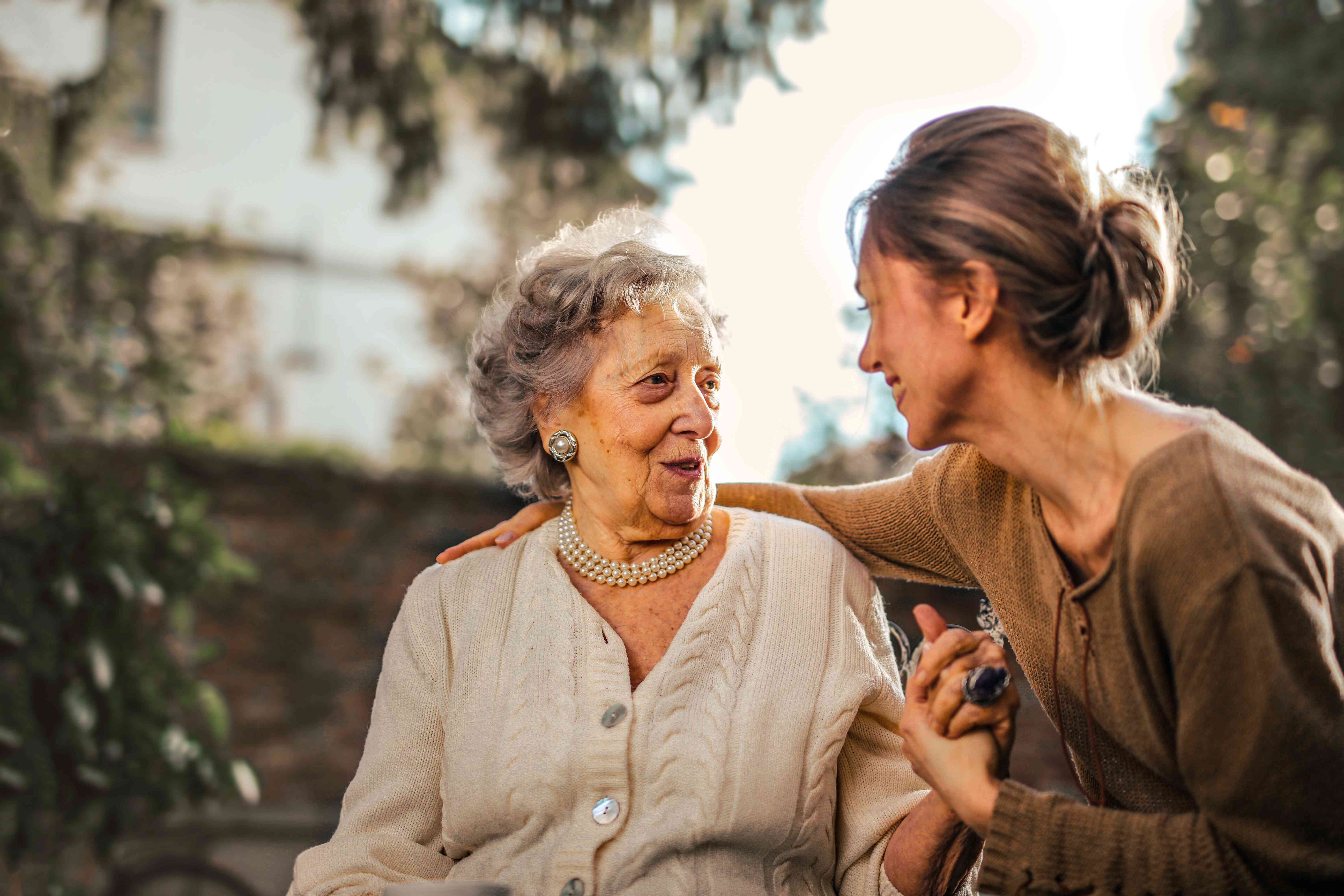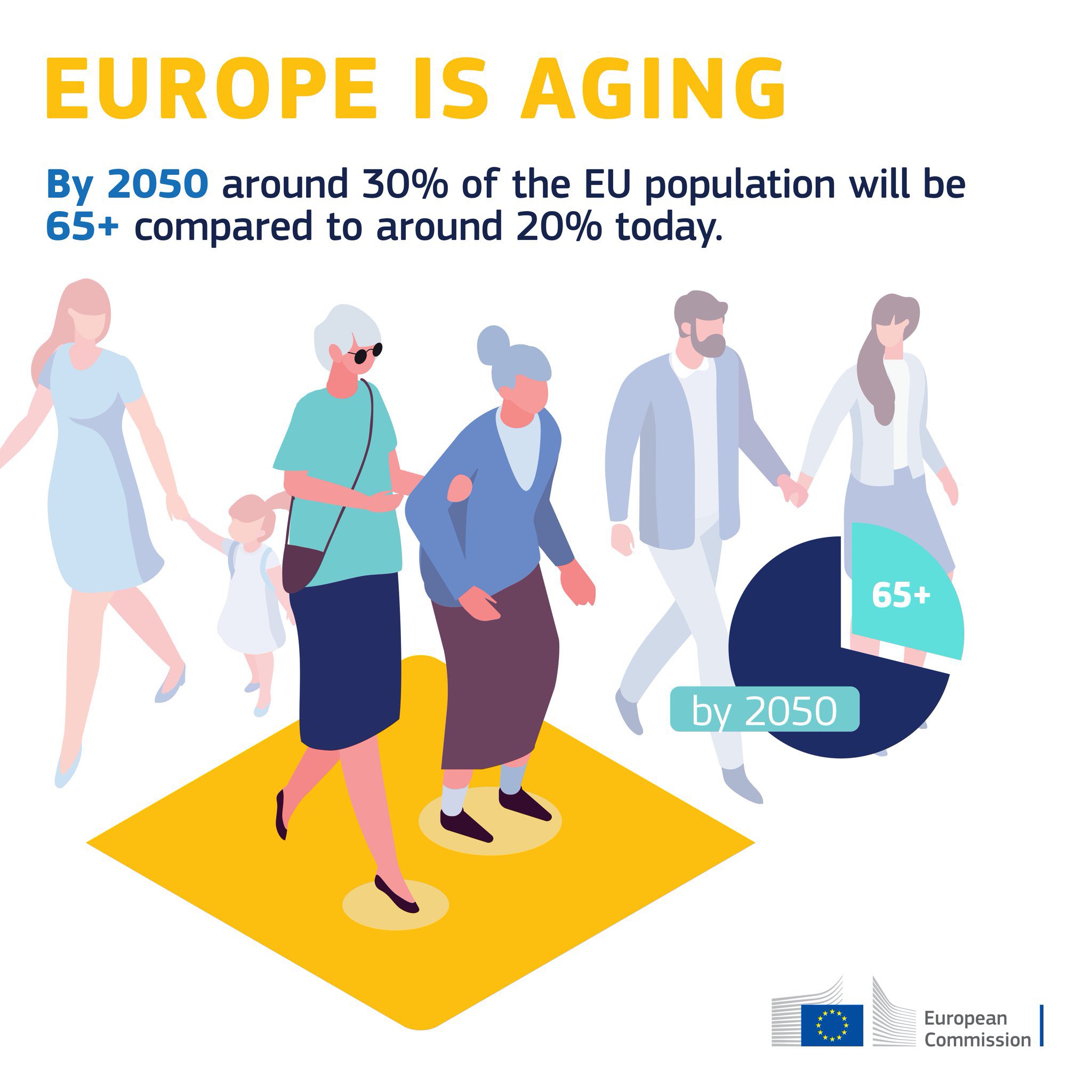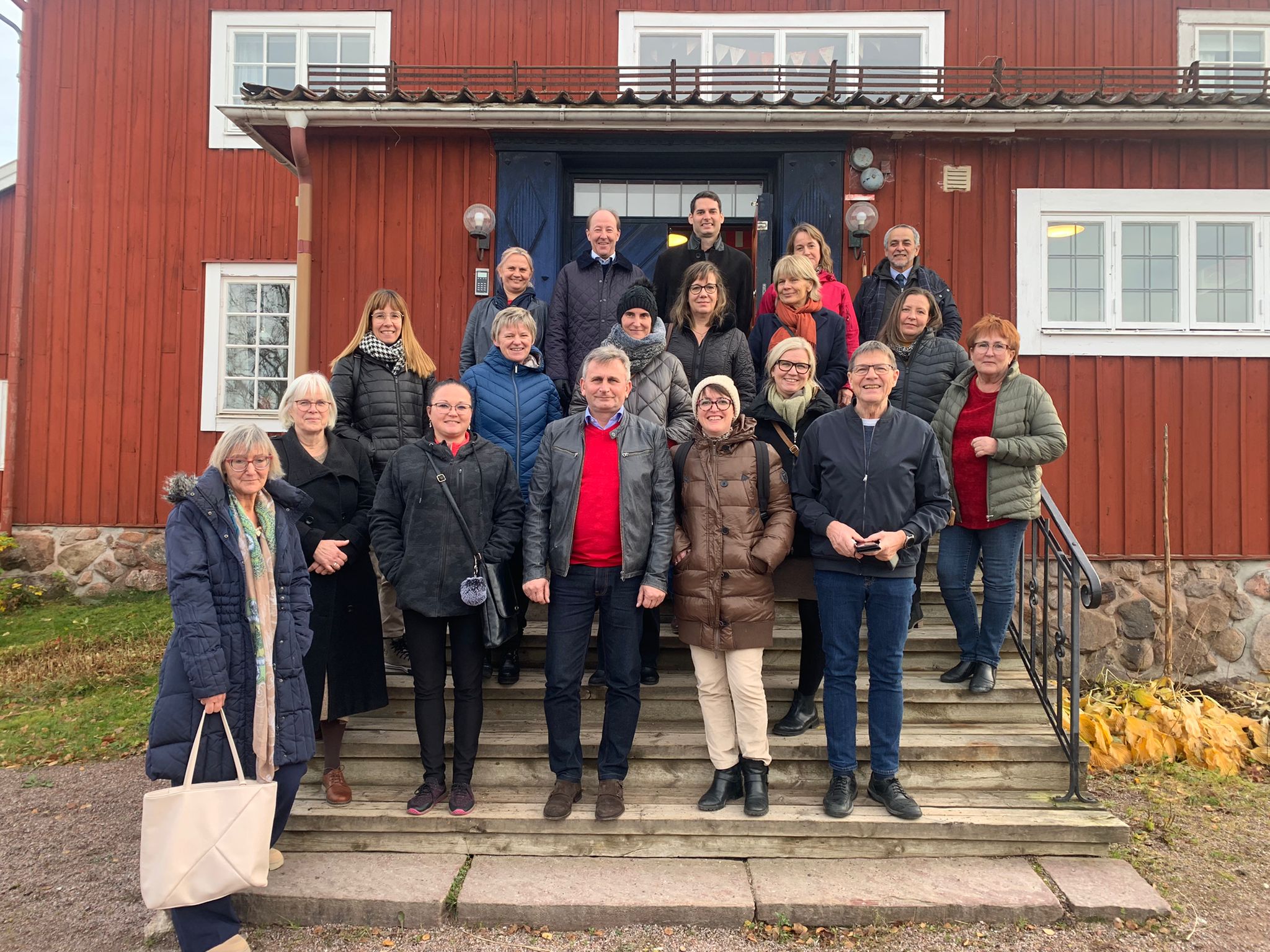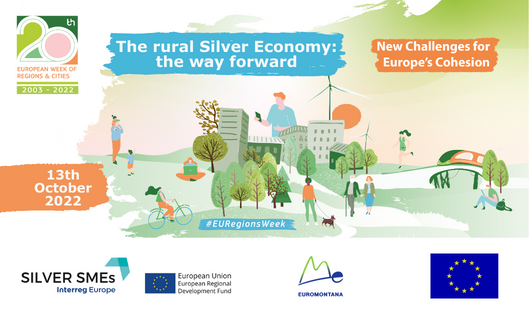Population projections suggest there will be 66.1 million people aged 80 years and over in the EU by 2080 (compared to 27.3 million people in 2016). In an ageing continent, older generations are often facing different forms of exclusion: social, economic, spatial exclusion as well as exclusion from services and public civic life. How to ensure inclusive societies for older generations? This was the topic of the final conference of ROSEnet COST ACTION (Reducing Old-Age Social Exclusion: Collaborations in Research & Policy), organised on 5 March 2020 in Brussels.
What are the factors of older people’s exclusion?
Older people are facing different types of exclusions in Europe. Exclusion from others is not the same as feeling lonely. Lonely either while surrounded by other people either when not in the society. Also, exclusion is an exogenous force: a structure and agency related to that, pushing people out. Apart from economic exclusion, often connected with pensions schemes and the labour market, seniors also suffer from social exclusion while “there is a universal need to be connected to people” claimed Marja Aartsen from the NOVA Centre for Welfare and Labour Research in Norway. If micro factors are to be taken into account, macro drivers should also be considered in the fight against exclusion. Issues such as housing and vibrant neighbourhoods play an important role in older people’s inclusion in societies.
Exclusion from services was also discussed during the conference, as one of the project’s working groups. Indeed, important inequalities exist between the elderly in Europe when it comes to access to transports, care and basic services. While improvements are possible, for instance through on-demand transports and smart services, Giovanni Lamura, from the National Institute of Health and Science on Ageing, Italy, warned “Active and Healthy Ageing should be encouraged through the opportunities offered by smart ICT solutions. However, there is a risk of exclusion here, as the majority of older people do not have good digital skills”. The Internet of things can thus be a solution only for a group of seniors but cannot answer the overall needs of older people, especially when the lack of digital capacities is combined with a lack of connectivity in rural and mountainous areas.
Lucie Vidovicova, a sociologist from Masaryk University in Czech Republic, has long studied the living conditions of older people and compared them between urban and rural areas. According to her, there is a hegemony of urban centres in ageing policies whereas older people also face an important risk of exclusion in rural areas, especially when remote or sparsely populated. Beyond the rural / urban divide, some dimensions of spatial exclusion of older people can also occur in any territory: public spaces such as parks are often not designed to meet the needs of seniors, illustrated Lucie Vidovicova – an observation echoing the efforts made by Bandon, an Age-Friendly Town of Cork County visited by SILVER SMEs partners, where public benches with armrests were for instance put in place. To fight spatial exclusion of older people, ROSEnet is therefore advocating for an age-friendly rural development that encourages place-based solutions considering the needs of older generations.
Policy recommendations to fight age exclusion
Different measures can help to improve policies support older people and improve the consideration of their needs:
- Implementing an old-age proofing of policies
- Making statistics compulsory (some countries do not collect data on people over 80) to enable the development of evidence-based policies and to offer a space of public expression and visibility for this population group
- Changing our mindsets to see older people as strengths for communities, including vulnerable one
- Adopting a comprehensive system approach when designing policies supporting older people’s lives and stopping working in silos: measures connected with rural development and cohesion policies matter for older generation as they can impact the availability of public and private services such as transports, ATMs, local shops etc.
The topic of ageing should be more and more visible in the coming months. In 2019, support to older people was already highlighted in the Committee of the Regions’ opinion by Birgitta Sacrédeus, from the Dalarna region. In 2020, the European Commission has announced the publication of a Report on the Impact of Demographic Change in early April. Dubravka Šuica, EU Commissioner for Democracy and Demography, is responsible for the Report and has also been commissioned to present in the 4rth Quarter 2020 a Green Paper on Ageing, which should define the basis for political support to older generations.











